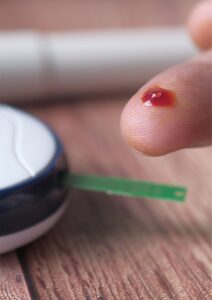Hello everyone,
Today, let’s go back in time and explore an old friend in the world of diabetes management – the sulfonylureas. Ever wonder why they are often prescribed during the early stages of Type 2 diabetes? Well, fasten your seat belts, because we’re about to embark on a fun journey through your bloodstream to discover why!
First, a quick history lesson. The existence of sulfonylureas was brought to light in 1942, thanks to the groundbreaking work of Janbon and his team. (That’s even before the television remote control was invented! Can you believe it?)
So, what’s special about sulfonylureas? Well, these compounds, including friendly names like tolbutamide, gliclazide, and glibenclamide, have a magic trick up their sleeve. They’re like little pep-talkers for the beta cells in your pancreas, encouraging them to release more insulin into your bloodstream. And they do this by binding to special “sulfonylurea receptors” (SUR-1) on the cell membranes. Picture it as a cheerleader, shouting through a megaphone to encourage our pancreatic friends to up their game!
The end result? Lower blood glucose levels and a significant improvement in secondary complications of diabetes (yay for team sulfonylureas!).
But, alas, no superhero is without a weakness. Since these cheerleaders (sulfonylureas) are a tad overenthusiastic, they can persuade your pancreas to release insulin regardless of your blood glucose level. This can lead to episodes of hypoglycemia, especially in patients with kidney disease. They’re also more effective in the early stage of Type 2 diabetes, so their cheering has a time limit.
And as with most medications, there are potential side effects to consider. Weight gain, cardiovascular diseases, and beta-cell dysfunction have all been reported in connection with sulfonylureas treatment. It’s like a post-game celebration party that got a bit too rowdy!
So, the takeaway? While sulfonylureas have their limitations, they remain a useful tool in managing early-stage Type 2 diabetes. They’ve stood the test of time since 1942, helping countless individuals keep their blood glucose levels in check.
Until next time, remember that knowledge is power, especially when it comes to managing your health!
(Note: This blog provides general information about health-related matters. Always consult your doctor or a professional healthcare provider for medical advice.)








